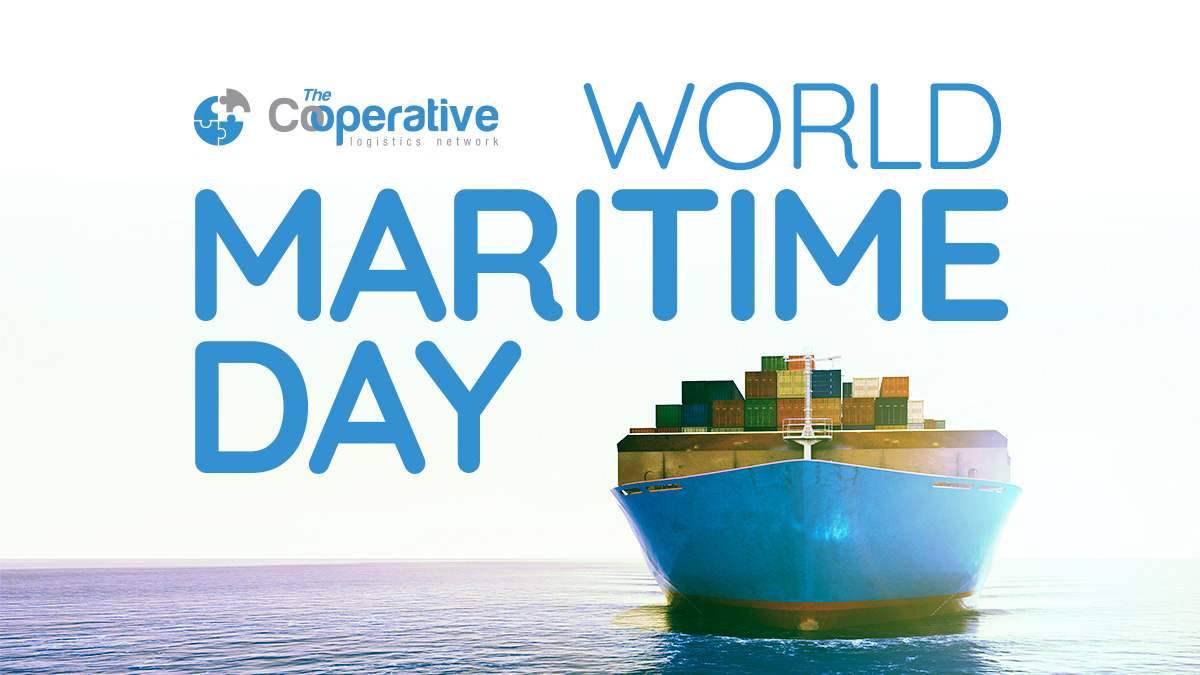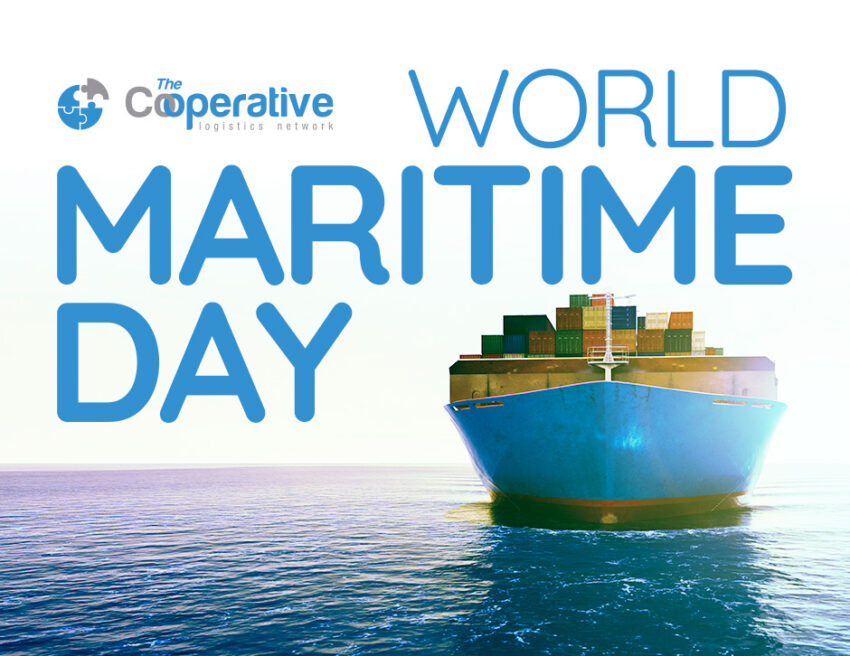Every year, the world celebrates International Maritime Day to emphasize the indispensable role of the maritime industry in global trade and economy. Held in September and established by the International Maritime Organization (IMO), this day draws attention to maritime safety, environmental sustainability, and the importance of shipping in facilitating world trade. For freight forwarders and shipping professionals, this occasion also serves as a reminder of the pivotal role ocean freight plays in the global logistics ecosystem.
In today’s blog, we will explore the critical role of ocean freight in securing the daily flow of goods, the contributions of ocean freight forwarders, and how these key players help to ensure that global supply chains run smoothly.

The Significance of International Maritime Day
International Maritime Day, established by the IMO, aims to raise awareness about the maritime industry’s impact on global trade and the world economy. It also highlights the challenges faced by the shipping industry, including environmental concerns, shipping safety, and the requirement for sustainable shipping solutions. As over 80% of global trade by volume is transported by sea, sea freight is undeniably the lifeline of global trade.
This year’s International Maritime Day is focused on “Navigating the future: safety first!“. This theme underscores the importance of maritime safety and security, while also addressing the need for regulatory frameworks that can keep pace with rapid technological advancements. The theme also emphasizes the need to balance innovation with environmental protection, as shipping companies adopt new technologies and alternative fuels in their quest to reduce greenhouse gas (GHG) emissions and enhance operational efficiency.
The 2024 World Maritime Day Theme: “Navigating the Future: Safety First!”
The 2024 theme reflects IMO’s commitment to enhancing maritime safety and security while ensuring that technological advancements are safely integrated into the shipping industry. As alternative fuels and new technologies reshape the future of ocean freight, IMO is working to address the safety regulatory implications that arise. The organization aims to reduce GHG emissions from ships, improve safety protocols, and maintain the smooth flow of seaborne international trade, all while anticipating the rapid pace of change in the maritime industry.
From autonomous ships to blockchain technology, the introduction of cutting-edge solutions requires careful oversight to prevent disruptions and safeguard the environment. As forward-thinking regulations are put in place, the theme reminds us that safety must remain at the forefront of all advancements in maritime shipping.
The Role of Ocean Freight in Securing Global Trade
Ocean freight is the backbone of international trade, moving vast quantities of raw materials, finished goods, and intermediate products across the world’s oceans. From automobiles and electronics to food supplies and industrial machinery, nearly every item in our homes and businesses has, at some point, been transported by sea. Here are some key reasons why ocean freight remains essential:
- High Volume Capability: Shipping by sea allows the transport of large quantities of goods that would be impractical or impossible to move via air or land. Bulk shipments of raw materials like oil, grains, coal, and metals rely on the capacity that ocean vessels offer.
- Cost-Effectiveness: Ocean freight is often the most cost-effective way to ship goods over long distances. When transporting heavy or bulky goods, maritime shipping is far more economical than air freight, making it the preferred choice for companies seeking to optimize costs in their global supply chains.
- Global Reach: Shipping networks span across every continent, providing unparalleled connectivity. Ports serve as gateways for international trade, and many nations depend on maritime shipping for both imports and exports, fueling their economies and ensuring access to essential goods.
- Environmental Efficiency: Although shipping contributes to carbon emissions, it remains one of the most efficient modes of transport per ton of goods moved. Maritime shipping companies are investing in greener technologies, from alternative fuels to more efficient ship designs, as they strive to reduce the environmental footprint of ocean freight.
Ocean Freight Forwarders: The Unsung Heroes of International Trade
While ocean freight plays a crucial role in securing global trade, it is the expertise and dedication of ocean freight forwarders that make the system work seamlessly. These professionals are the linchpin between shippers and shipping lines, ensuring that goods move efficiently from point A to point B, overcoming logistical hurdles along the way. Let’s look at the essential role of ocean freight forwarders:
- Navigating Complex Logistics: Ocean freight forwarders are experts at navigating the intricacies of international shipping, which involves dealing with numerous stakeholders, such as port authorities, shipping lines, customs brokers, and inland transportation providers. Their knowledge of trade routes, shipping regulations, and documentation is crucial for ensuring that goods arrive on time and in compliance with international laws.
- Customs Clearance Expertise: One of the most challenging aspects of global trade is clearing customs in different countries. Ocean freight forwarders possess in-depth knowledge of customs regulations, tariffs, and duties, helping businesses avoid costly delays or penalties. They ensure that all necessary documentation is in order, from bills of lading to certificates of origin, facilitating smooth transit across borders.
- Mitigating Risks: Ocean freight forwarding involves numerous risks, including weather disruptions, geopolitical tensions, and unforeseen delays at sea. Freight forwarders play a key role in mitigating these risks by securing insurance, managing contingencies, and keeping clients informed of any developments that could impact delivery schedules.
- Cost and Time Optimization: Freight forwarders excel in finding the most efficient and cost-effective routes for shipments. By consolidating cargo, negotiating with carriers, and planning optimal transit paths, they help businesses save time and money, ensuring their supply chains remain competitive and resilient.
- Value-Added Services: Beyond the basics of shipping, ocean freight forwarders offer a range of value-added services, including warehousing, inventory management, and last-mile delivery. These additional services provide shippers with end-to-end solutions, allowing businesses to focus on their core operations while entrusting the logistics to experienced professionals.
Challenges Facing the Maritime Industry and Freight Forwarders
Despite the essential role ocean freight plays in global trade, the maritime industry faces several challenges that ocean freight forwarders must navigate:
- Environmental Regulations: New international regulations, such as the IMO’s 2020 Sulphur Cap, require shipping companies to reduce sulfur emissions significantly. This has led to higher fuel costs and the need for investment in cleaner technologies. Freight forwarders are working closely with shipping lines to ensure compliance while minimizing cost increases for shippers.
- Port Congestion and Supply Chain Disruptions: Recent global events, including the COVID-19 pandemic and the subsequent recovery, have caused unprecedented congestion at major ports worldwide. Ocean freight forwarders must constantly adapt to these disruptions, finding alternative routes, expediting customs clearance, and managing inventory delays to keep goods flowing smoothly.
- Sustainability and Innovation: As environmental concerns become more pressing, freight forwarders are seeking innovative solutions to enhance the sustainability of ocean freight. Technologies such as blockchain for transparent shipping documentation, AI-driven route optimization, and alternative fuel sources are beginning to reshape the industry. Forwarders are at the forefront of these changes, implementing new solutions that make shipping more efficient and eco-friendly.
Conclusion
As we celebrate International Maritime Day, we must recognize the indispensable role that ocean freight and its dedicated professionals, the freight forwarders, play in securing the daily flow of goods worldwide. Without them, the global economy would grind to a halt, and consumers would not have access to the wide range of products they rely on every day.
While the maritime industry faces numerous challenges, including environmental regulations and supply chain disruptions, the expertise and adaptability of freight forwarders will continue to drive the industry forward, ensuring that international trade remains resilient and efficient. Let us take this opportunity to appreciate the contributions of all those who work tirelessly in the maritime sector, helping to keep global trade afloat.


